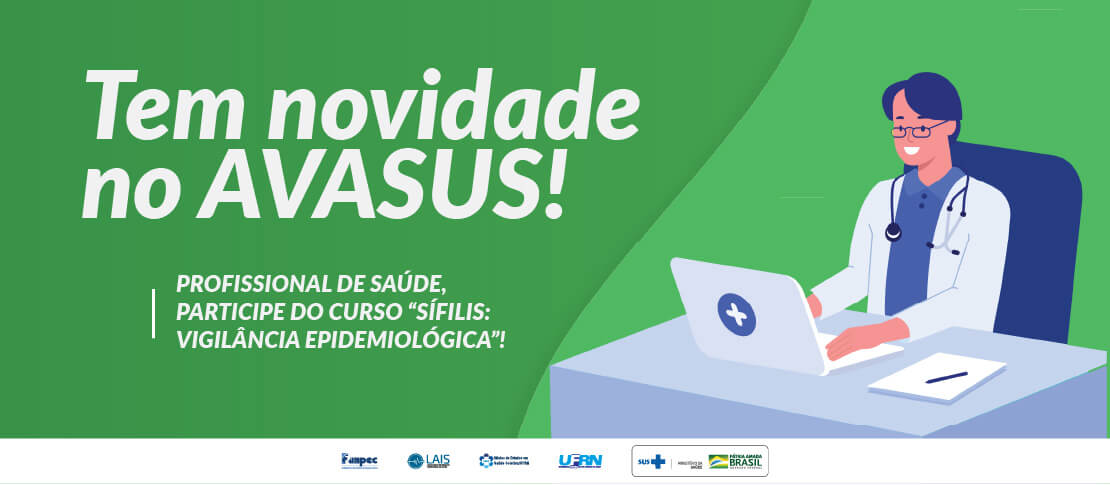Bruno Cássio – LAIS/UFRN Communications Office
The SUS Virtual Learning Environment (AVASUS) is constantly expanding the offer of self-instructional courses to improve patient care and professional development in the Unified Health System. Now, those who deal with the management of syphilis can access, free of charge, the module “Syphilis: Epidemiological Surveillance”, available in the “Syphilis and other ist” Training Track.
The course aims to promote the updating of health professionals on concepts related to notification systems and information flow, and also presents a critical approach to the epidemiological bulletin and invites reflection on the interaction between Epidemiological Surveillance and Health Care, in its different levels of care in the Health Care Network (RAS).
Maria Suêly Lopes Correia Pereira, representative of the Strategic Information Center for Health Surveillance (CIEVS/SESAP/RN), and Professor Tamara Peçanha Sharapin Alves, MSc in Social Dentistry from the Federal University of Rio Grande do Norte (UFRN), specialist in Quality in Care and Patient Safety from the Oswaldo Cruz Foundation (Fiocruz), and VISA/SESAP/RN fiscal auditor, participated in the production of the module.
The module is part of the research of the PhD student in Contemporary Studies at the University of Coimbra and researcher at the Technological Innovation in Health Laboratory (LAIS/UFRN), Micheline Veras, executed under the project “Syphilis No”, through a partnership with the Center for Interdisciplinary Studies of the 20th Century (CEIS20) at the Portuguese university.
According to the researcher, “the expected impact is that, with this module, health professionals who attend syphilis cases, start to realize the importance of scientific evidence to act in daily practice, observing the best available evidence, with a reflective and systematic attitude”.
Questionnaire for the survey
The course was made available on April 19, 2022, and already has more than 260 enrolled. Participants are asked to complete a questionnaire about their perceptions of the content presented. The same will be used in the University of Coimbra’s doctoral research and will be available for completion until May 16, 2022. The expectation is to receive contributions from at least 200 course participants. Click here and register for the module.





